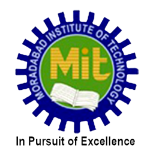
Department of Electrical Engineering
Program Educational Objectives
The Electrical Engineering program is dedicated to providing quality education that prepares students for successful careers. Students graduating with a bachelor’s degree will have the necessary technical, communication, and critical thinking skills as a basis for a successful, fulfilling and life-long career in electrical engineering. The Department has a list of four program educational objectives for our Bachelor degree students. These are:
PEO-1
Build a broad Electrical Engineering core competence to enable our students to approach problems systematically, to communicate and interact effectively with engineers in different areas of specialization, to assess the reasonableness of new ideas and the value of new technology, and to make technology decisions with confidence.
PEO-2
Develop in-depth knowledge and experience in Electrical Engineering areas to prepare our students for their first job or for entry into a post graduate engineering program.
PEO-3
Instill in our students an optimistic self confidence, a high degree of personal integrity, and the belief that they can each make a difference.
PEO-4
Upholding the importance of professionalism and ethics in Electrical Engineering profession to form a cultured and more developed society.

